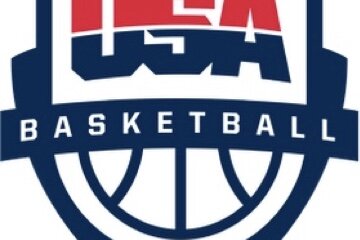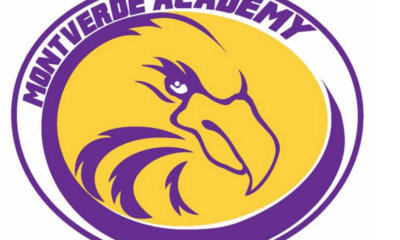You’ve got to hand it to Kim Mulkey, she certainly has a unique way of celebrating and stirring the pot. Her Bears recently wrapped up their seventh consecutive Big-12 title and in the process posted career win number 500 for the long time Baylor coach. She’s certainly entitled to seize the moment but talk about a major Division-I detour from party time in Waco. If you’ve been living in a media vacuum and aren’t familiar with her post game comments on the floor following the game and later in the press room, I’ll leave it to you to look the script up and interpret her observations and subsequent two apologies for yourself. It’s dominated the narrative surrounding the Lady Bears since the final buzzer that day and has continued to fester through this past Monday night’s upset loss to West Virginia in the Big-12 Tournament championship game.
Her post game posturing two weeks ago has kept Baylor in the conversation on sportscasts, podcasts and commentaries as well as on the front pages of newspapers and websites…and not for the reasons you generally want for your program come March. Attempting to rationalize her comments is simply pointless as there is no adequate explanation regardless of emotion, frustration or getting caught up in the moment. Trying to spin it any other way than a monumental mistake comes across with the same veracity as a tweet from 1600 Pennsylvania Avenue.
If you’re still hoping to find some insight into the genesis of those wayward comments, you can look to the source of Coach Mulkey’s fervor and vocal defense of good ole’ Baylor U. It’s a given that she’s passionate about her job and the university she’s called home since the 2000 – 2001 season. Beyond that there does exist a reality with a recruiting based perspective that shouldn’t be overlooked before Kim is taken out and biblically stoned. It doesn’t minimize the comments in any way nor provide her a formal pardon but it could offer a baseline understanding of where she might have been coming from.
Recruiters, the good ones anyway, see virtually everything through a pair of prescription “prospect” eyeglasses. Any story on the program, university or surrounding community is interpreted as to how it might paint a better image of the all possibilities offered by a career in the school colors for that next generation of recruits.
When there’s any type of scandal, crime, NCAA issue or any other dark cloud hovering over a university, it’s going to impact multiple facets of campus life including recruiting. As a college coach the last thing you want to see is your school in the headlines for all the wrong reasons. Even without any direct connection to your own program there can be a shadow cast that comes with challenging detours, public relations baggage and, too often, residual impact.
College coaches are less than thrilled when the good name of their team tarnished by a sibling program within their own athletic department, a distant cousin across campus or the rogue actions of any individual(s) within the university community as a whole. However, the reality is that any issue, regardless the size of its black eye, must be addressed to prospects, their parents and coaches. The proverbial “elephant in the room” can’t be ignored, marginalized or covered with make-up lest some toes get stepped on. Building a trust that will serve student athletes entails taking on all controversy willingly and without filters.
In fact, it’s the smart recruiter who is willing to bring it up first. When question marks beyond the recruiting norm are hanging in the air, it’s hard not to appreciate those coaches who put your concerns first and embrace the opportunity to shed some accurate light on a troubling concern. If they’re not the ones opening up the dialogue it should be a red flag about either their complete lack of intuitive awareness or, worse yet, their integrity. Case in point; if I’m a Baylor coach in the current rocky landscape I’m addressing the football train wreck long before my recruits, those around them or my competition can misinterpret or misrepresent the facts.
Not all issues are of the scope and magnitude of those in the recent headlines. When there are arrests on a campus or other incidents of crime that make it into the news cycle it would be foolish to think that it doesn’t set off some alarm bells in the back of the mind of a recruited athlete or her parents. Coaches should have already addressed campus safety early on in the recruiting process but any negative incident that raises some doubts should move to the forefront of the next conversation. While everyone always believes that the next victim will be someone else, a young woman and her family need to know why they should feel secure in trusting that sentiment.
That elephant in the room isn’t always one of the legal nature. Occasionally the police might be wearing the badge of the NCAA rather than that of law enforcement. Coaches still owe it to their recruits to explain the possible implications and impact from some missteps with the folks in Indianapolis. Obviously, if the issue lies within their own program the explanations may be difficult both to deliver and explain. If the football or men’s basketball programs find themselves in hot water there may well be some impact department wide. Eliminating football bowl money or the cash flow from a foray into March Madness can lead to potential budgetary impacts downstream, particularly in non Power Five conferences. If multiple programs within an athletic department are being sent to the principal’s office it may well be an indication of a culture that might not be conducive to the growth and wellbeing of both a program and its athletes. Obviously minor infractions aren’t the concern in this context but if legislative felonies are committed any potential relevance and impact might warrant some definition and clarification.
Even if nobody has crossed the line with law enforcement or big brother from the NCAA, there could be other headlines with ramifications worth some thought and discussion between recruiters and prospects. If “Big Dog U” has fired a highly compensated coach and will be paying his or her bills for a while there might, once again, be some tightening of the belt when budget time rolls around next. If multiple ex-coaches are still on the payroll it’s worth visiting just why they might have failed as well as the department’s ability to fund both current and former staffs at the same time.
On an individual basis, if athletes in other sports are finding their way into the news for all the wrong reasons it’s worth a conversation to get a grasp on the atmosphere surrounding an athletic department. It may have no bearing whatsoever on a specific recruit and her view of the university. It may have been an isolated incident, but then again it might be an indicator of a deeper issue. Problems in the department can indirectly become problems of the program. It’s just a question to what degree. While it’s great to be a bastion of virtue in a sea of confusion, you’re still part of that ocean and ride the waves it has the potential to create.
Even publicized academic struggles among multiple high profile athletes in other sports warrant some clarification. Naturally there are privacy rights in any individual academic scenario but if a fellow program in the department is losing players at the end of each term then there may well be some sort of systemic issue worth exploring. It may be simple and isolated to that specific individual, team and staff. However, then again still it could be a reflection on the support services and department wide commitment.
For college coaches, sometimes it’s the innocent and mundane that necessitate additional and repetitive framing in the recruiting process. Have your school named one of the top party schools in America…Let any annual list of “top schools” fail to mention your institution…Distance yourself from a controversial political candidate appearing on campus during an election year…Let the university hire a dubious high profile individual as an administrator, professor or guest lecturer…Regardless of the cause, explain some type of protest on your campus bringing the network satellite trucks to town.
Recruiting has its own inherent ups, downs, pluses and minuses to address. The introduction of important concerns with the same magnitude and legitimacy of those surrounding Baylor football warrant well thought and proactive efforts on the part of college coaches. I have no doubt Coach Mulkey and her staff had already done that with their active recruits before the “mic drop” incident heard round the sport. Without question the accusations in Waco are abhorrent, criminal and a disgrace to college athletics. At the same time, would I let my daughter attend Baylor University? You bet. Would I let her play for Kim Mulkey? Absolutely, with no reservations whatsoever.
While it’s a cliché’, leaving no stone unturned is paramount in making a good decision as to where to play collegiately and…equally…where to call home for four or five years. Fortunately, most of those stones don’t come with outside independent investigators and looming lawsuits. While Kim didn’t quite evoke the response she may have envisioned, she did, whether intentional or not, provide an important reminder that no issue on any campus is out of bounds in the recruiting process. Nor should it be. Whether it’s in the headlines again and again or a lesser blemish that sticks around forever like a bad rash, athletes deserve forthright answers and complete clarity. Anything less potentially becomes a deal breaker in its own right.
Mark Lewis is a national evaluator and photographer for Blue Star Basketball as well as the lead columnist for Blue Star Media. Twice ranked as one of the top 25 Division I assistant coaches in the game by the Women's Basketball Coaches Association (WBCA), he logged 25 years of college coaching experience at Memphis State, Cincinnati, Arizona State, Western Kentucky and Washington State. Lewis serves as a member of the prestigious McDonald’s All-American selection committee as well as the Naismith College Player and Coach of the Year committees.






